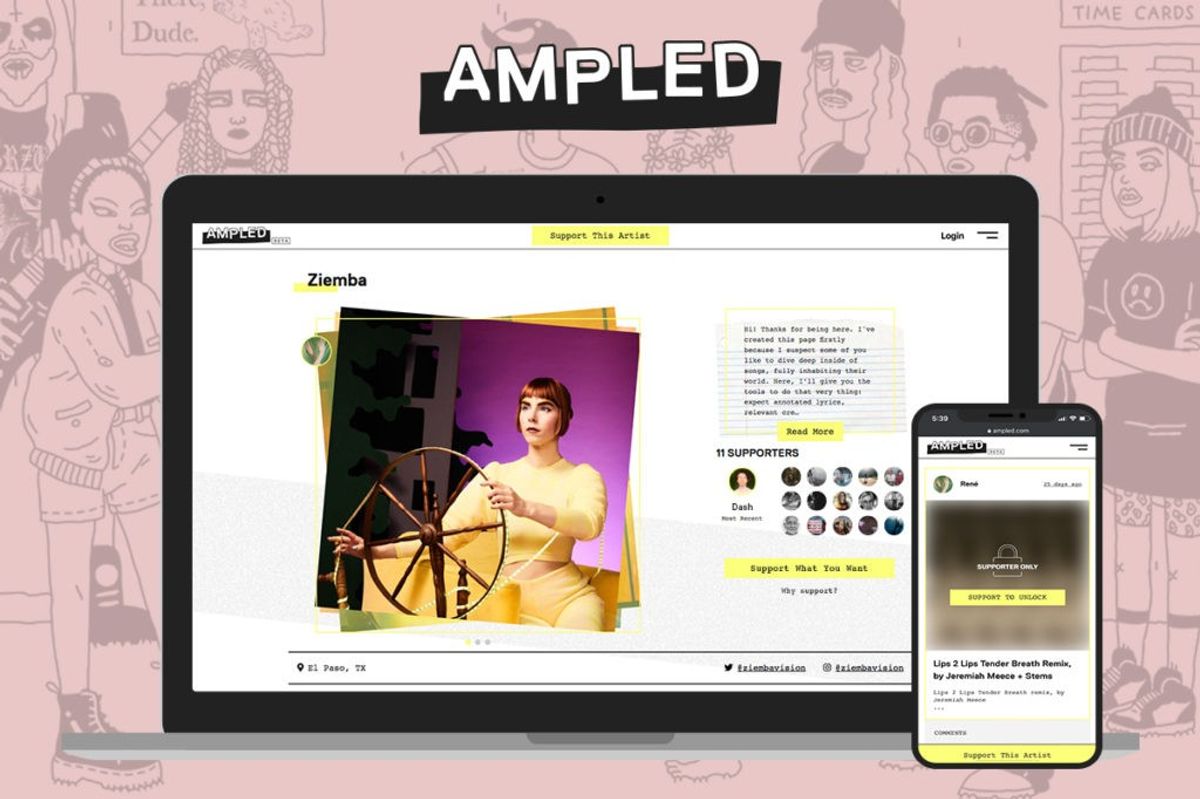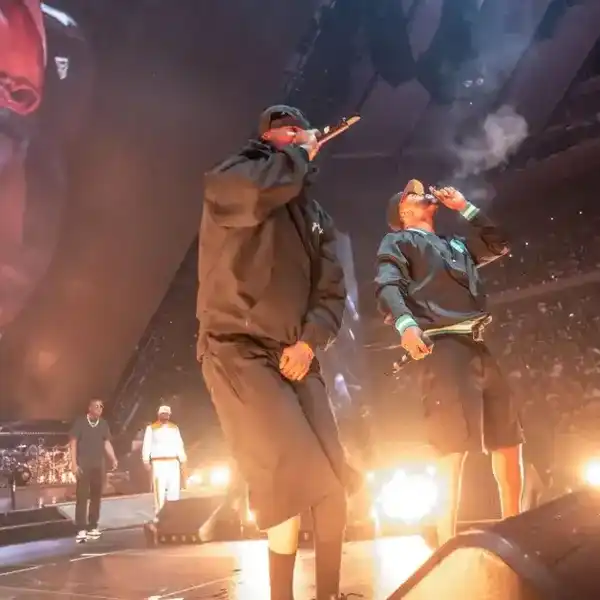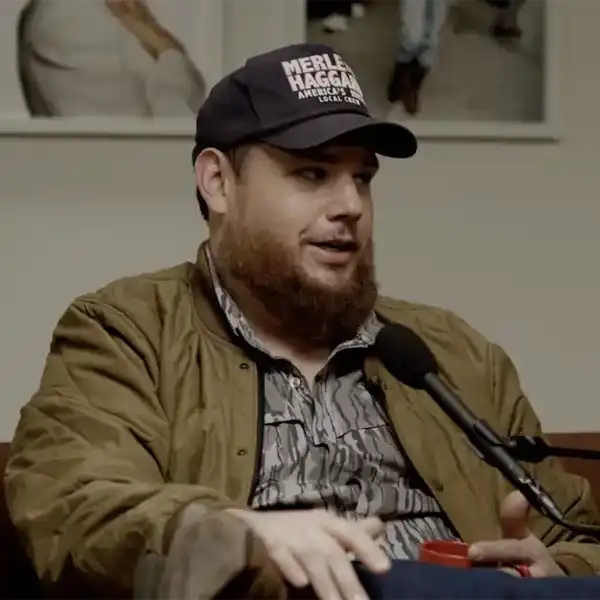Artist-Owned Music Platform Ampled Announces Closure
The cooperatively-owned platform, which over 800 artists have used to connect with supporters, will cease operations by the end of 2023.

An Ampled artist page
Ampled, a web platform for musicians, has announced that it will be winding down operations by the end of the year. It was one of a handful of services aiming towards a new model of music distribution separate from the economics of big streaming services.
The platform, which is cooperatively-owned by artists who use it, is similar to Patreon in that it allows users to earn support from a community of subscribers, but is designed specifically for musicians. Founded in 2018, the platform has had over 800 artist users, including Vancouver songwriter Madelyn Read and Montreal musician Pompey.
“For the last two years, we’ve faced a combination of challenges – primarily from burnout and a lack of resources to hire full-time workers,” the platform’s Board of Directors explain in a letter about their decision to close.
“Over the past several months, we have exhausted all practical options to continue operations, and ultimately determined that we do not have the resources or bandwidth to responsibly continue in a way that honors the Ampled values and community."
Ampled sought to distinguish itself from other music platforms through its cooperative structure, which prioritized “radical transparency, democratic governance, and broad-based user ownership.” The cooperative was collectively built by former employees of Kickstarter, Patreon and Spotify.
“We’re rethinking the ownership structures of platforms and fundraising in a way that doesn’t give money to venture capital owners,” said co-founder Austin Robey in a 2020 interview. Alongside community-owned streaming services like Resonate and Means TV, Ampled emerged as part of a growing interest amongst cultural labourers in challenging the economics of streaming and web platforms.
Read says Ampled was the most reliable and valuable revenue source for her music.
"Overall, I think Ampled is an amazing model for supporting artists," Read tells Billboard Canada. "It also enabled me to connect with fans and my own artistic process in unique and meaningful ways."
Spotify, the largest music streamer, pays artists through a “streamshare” model, which compensates artists based on their proportion of songs streamed per month on the platform. That can be very lucrative for major artists at the top, but for many independent artists it tends to be much lower. Among other alterations meant to move to an "artist-centric" model, changes to the payout system will soon de-monetize tracks that had previously received 0.5% of Spotify's royalty pool. Subscriber models like Ampled and Patreon allow artists to earn directly from their fans.
With a small team, though, these models can be hard to maintain. An Ampled blog post from UK-based act Battery Operated Orchestra explains the group’s decision to move from Ampled to Bandcamp. “As much as we want to support Ampled and their vision for a creator-owned and sustainable platform for musicians,” the post states, “the issues with card payments have been preventing people from joining us.”
Read says she's sad to see Ampled close down. She works professionally in the co-operative movement, and suggests that members could have been better informed of Ampled's problems and even useful in supporting the platform. "I felt left in the dark about the challenges the co-op was facing," Read explains. "I know the board has worked incredibly hard to keep the co-op running...The members could have been a part of the solution."
Ampled isn’t the only platform encountering difficulties. Bandcamp, where artists can upload individual releases for purchase, was recently acquired by B2B platform Songtradr. Roughly half of the staff have been laid off in the process, leading many artists using the platform wondering what this will mean for them.
The Ampled team plan to share lessons learned during their time at the platform, to use as a case study for similar initiatives going forward.
“This shouldn’t be misinterpreted as a sign that cooperative platforms can’t be successful,” the Board of Directors letter reads. On X, Robey shared some of the platform’s accomplishments, like providing all artist-owners with certificates of ownership, making the platform code publicly available, publishing Ampled zines, and helping artists pay rent.
“What we built together has been extraordinary, and we deeply value every relationship and connection formed through this platform,” the letter concludes. “It has been an honor to create and grow with you.”

















